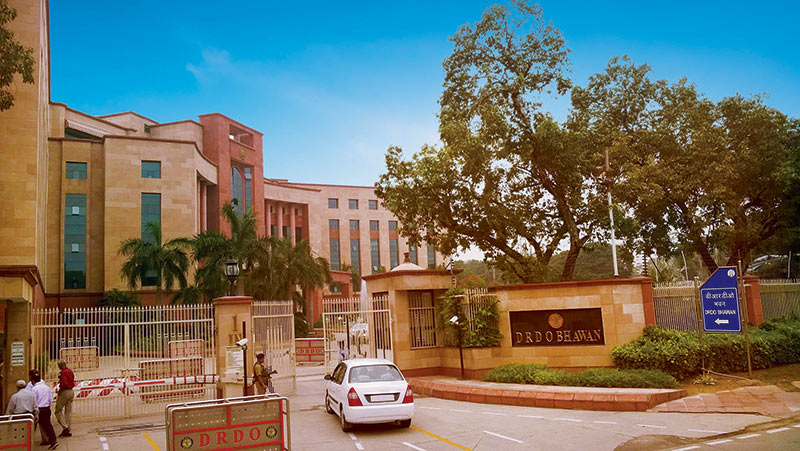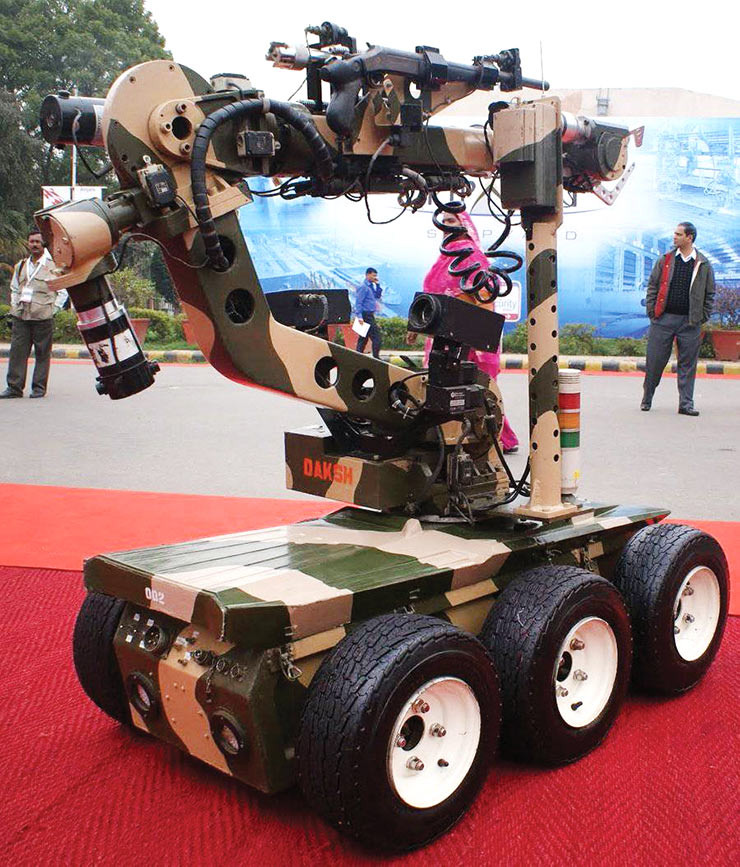
In less than fifteen years since the last major overhaul of the Defence Research and Development Organisation (DRDO) based on Dr P Rama Rao Committee’s recommendations, the government has constituted a high-powered committee to recommend the modality of yet another overhaul.
The nine-member committee is headed by Prof Vijay Raghavan, a former Principal Scientific Advisor to the Government of India, and its members are drawn from diverse backgrounds: military, industry, scientific, academic, and finance. According to a report by Shishir Gupta in The Hindustan Times (23rd August 2023), the committee’s task is to recommend measures to:
• Restructure and redefine the role of Defence R&D and DRDO, their mutual relationship, as well as their outreach to academia and the industry.
• Maximise the participation of the academia, Micro, Small and Medium Enterprises (MSMEs) and start-ups in developing cutting edge technologies.
• Formulate a package of incentives and disincentives linked to performance appraisal and accountability to attract and retain scientists.
• Facilitate involvement of NRI experts and foreign consultants in defence R&D and promote inter-country collaborations for development of cutting edge and disruptive defence technologies.
• Modernise administrative, personnel and financial systems for speedier execution of projects.
• Rationalise the laboratory structures and their performance evaluation process.
These terms of reference (ToRs) are analogous to those of the Rama Rao Committee, most of whose recommendations were accepted and implemented between 2008 and 2015. Even the fastidious parliamentary Standing Committee on Defence (SCoD) which, inter alia, reviews DRDO’s functioning every year while examining the demands for grant, seemed satisfied that things were moving in the right direction.
In March 2023, SCoD gave DRDO a pat on the back – based on the information furnished by the Ministry of Defence (MoD), no doubt – for having ‘made rapid progress with the infusion of private sector involvement in (its) research-related activities’, setting up of world-class test facilities, signing MoUs with leading industry chambers, transferring technology and patents to the private Industry free of cost, raising monetary assistance for prototyping under Defence Technology Development Fund (TDF) from INR 10 crore to INR 50 crore, et al.
Considering that there has not been any major blunder on DRDO’s part since March this year, what prompted the MoD to reconsider its own view of DRDO’s functioning and conclude that the organisation required a major overhaul, is intriguing. Be that as it may, this turnabout has two important implications for the Raghavan Committee.
One, it is a clear signal that the DRDO has underperformed, if not failed to achieve whatever it was expected to, but since this assessment is evidently not based on any objective appraisal of DRDO’s performance, the committee will first have to identify the systemic problems bedevilling DRDO that need to be addressed. This isn’t going to be easy.
For one, the committee has just three months to finalise its report, which is not a sufficient timeframe for the job and, for another, most of the members are, or have been, associated with institutions traditionally critical of the DRDO. This is not to cast any aspersion on the integrity and expertise of the committee members, but to point out that, pressed for time the committee may have to base its analysis on preconceptions about DRDO’s functioning.
There is no dearth of literature pillorying DRDO for time and cost overruns due to institutional inefficiency, arrogating to itself all major development projects, lack of accountability, covert aversion to private sector participation in R&D projects, indifference to the users’ requirements, and the like, but these generalised notions are a poor substitute for an unequivocal analysis of the systemic lacunae that ail defence R&D. Appropriate solutions cannot be found unless the omissions that need to be addressed are identified.
Two, DRDO has taken persistent steps in the past fifteen years, based on the Rama Rao Committee recommendations and even independent of that, to address organisational and functional issues. Setting up of the Raghavan Committee indicates that none of these steps have helped, not enough in any case. This puts the onus on the committee to not only figure out why the efforts made in the past did not yield the desired results, but also to come up with recommendations which have not been made and tried out in the past.

This can limit the committee’s options when it comes to finalising the recommendations, unless it decides to regurgitate the old recommendations or re-suggest the ones which were rejected in the past, one such recommendation being to set up a Board of Research for Advanced Defence Sciences (BRADS) on the lines of Defence Advanced Research Projects Agency (DARPA) of the U.S.A.
Rama Rao Committee had also suggested creation of a Defence Technology Commission (DTC) and a separate commercial arm for the DRDO. Nothing came out of these recommendations and though Raghavan Committee has the option of recommending creation of similar organisations to improve or supplement DRDO’s functioning, it will have to be backed by persuasive arguments for those recommendations to find favour with the government.
It may be recalled that a few years ago, a committee set by the MoD, when it was headed by late Manohar Parrikar, had recommended setting up of an overarching Defence Capability Acquisition Organisation to address the multiple problems related to R&D, capability development, commercial production of defence material, private sector participation, acquisition, and exports. For reasons that remain unclear, the enthusiasm initially shown by MoD in implementing the recommendation quickly waned with the change of guard.
One distinct lesson from these past developments is that if Raghavan Committee finds it appropriate to recommend creation of one or more additional structures like BRADS and DTC, it must first examine why analogous recommendations made by Rama Rao Committee were rejected and then address those concerns in its report.
Going by the government’s policy of maximising private sector participation in defence, it will be surprising if the Raghavan Committee does not recommend suitable measures to expand its role in R&D, beyond the present system of DRDO working with Development-cum-Production Partners from the private sector right from the inception of various programmes and funding developmental projects through the Technology Development Fund.
Creation of new structures or increased participation of private sector in R&D is not the cure for all ills, though. Overall improvement in defence R&D requires formulation of a workable policy framework and executable plans, limiting DRDO’s role to development of critical and futuristic technologies, and giving a serious thought to shedding R&D entirely to the private sector in non-core areas (like food and medicine) or where it can potentially perform better (like AI and robotics).
It is also important to minimise MoD’s bureaucratic control over DRDO. This may require it being converted into a semi-autonomous organisation, functioning at an arm’s length from the ministry. The mechanism for coordination between DRDO and the services too requires revamping.
It will be in the fitness of things if the Raghavan Committee makes ready-to-be-implemented recommendations, while retaining DRDO’s role as the overarching organisation responsible for coordinating R&D efforts presently being disjointedly performed by numerous agencies. It will be a mistake to dilute DRDO’s role as the primary government agency for coordinating all R&D projects, irrespective of the agency undertaking them.
Structural and functional issues can be addressed, but defence R&D cannot be put in the top gear with limited budget outlays, which have become a norm. The R&D allocation came down from 6.38% of the total defence outlay in 2018-19 to 5.1% in 2023-24, while as a proportion of the GDP it has slipped from a 0.088% in 2017-18 to 0.078% in 2023-24.
It remains to be seen if financial constraints, generally relegated to the background, will receive as much attention as other issues and, more importantly, what recommendations are made by the Raghavan Committee to overcome this seemingly intractable problem.
–The writer is a Ex-Financial Advisor (Acquisition), Ministry of Defence. The views expressed are personal and do not necessarily reflect the views of Raksha Anirveda















